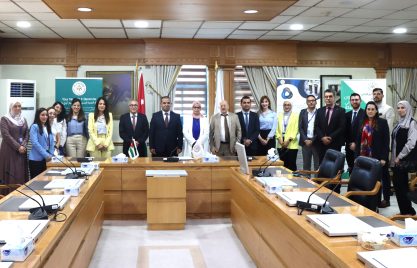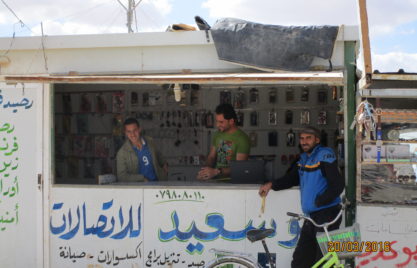The Central Bank of Jordan (CBJ) will be taking over a regulatory and supervisory role over MFIs, with the new microfinance bylaw coming into effect in June. Its Moroccan counterparts, the Ministry of Economy and Finance (MOEF) and the Bank Al-Maghrib (BAM), which assumes supervisory oversight of MFIs since 2015, offer many lessons to learn from. Thus, the CBJ, the microfinance network Tanmeyah, and GIZ undertook a knowledge exchange visit to Morocco from May 11–15 to study regional best practices. What are some of the delegation’s lessons learned about Morocco’s approach to microfinance regulation and supervision?
The MOEF and the BAM undertook timely interventions including new regulations on governance, internal control, and risk management in MFIs, on the eve of and in response to the microfinance crisis in 2009. Then, an unprecedented growth of the sector translated into a sharp rise in non-performing loans mainly driven by multiple lending combined with poor policies, governance and credit methodology in MFIs. Ever since, the sector has not only recovered but developed well in terms of system stability and client protection.
Active supervision by the authorities goes hand in hand with firm support by the infrastructure, which has ensured the turnaround and strengthening of the microfinance sector. BAM’s active on- and off-site supervision of the 13 MFIs (all NGOs) covers all domains, from governance to client protection. The major MFIs exchange comprehensive credit data through a credit bureau which integrates the microfinance and banking sectors. This has improved lending practices and allowed for indebtedness and cross lending to be well monitored. MFIs are further benefiting from support services of strong service-level institutions: Jaïda, for instance, offers funding, technical assistance and MIS while the Centre Mohamed VI de Solutien à la Microfinance Solidaire trains staff and educates client segments in financial and business matters.
The exchange visit of the Jordanian delegates to Morocco also revealed what both sides have in common: Increased coordination among the different authorities and the infrastructure players in the microfinance sector as well as transformation of NGO MFIs would add to a more inclusive and stable financial sector. Going forward, the authorities from both countries can still materialize this chance. Importantly, the Jordanian delegates returned home with the lesson that it surely does not need a crisis to create an environment for MFIs to flourish: “A stitch in time saves nine”, as an English proverb says.
The Jordanian exchange visit to Morocco was funded through a World Bank grant from the MENA transition fund and supported by GIZ’s regional MFMR programme, which is carried out with funding by the European Union.
By Atilla Yücel, Casablanca / Amman



